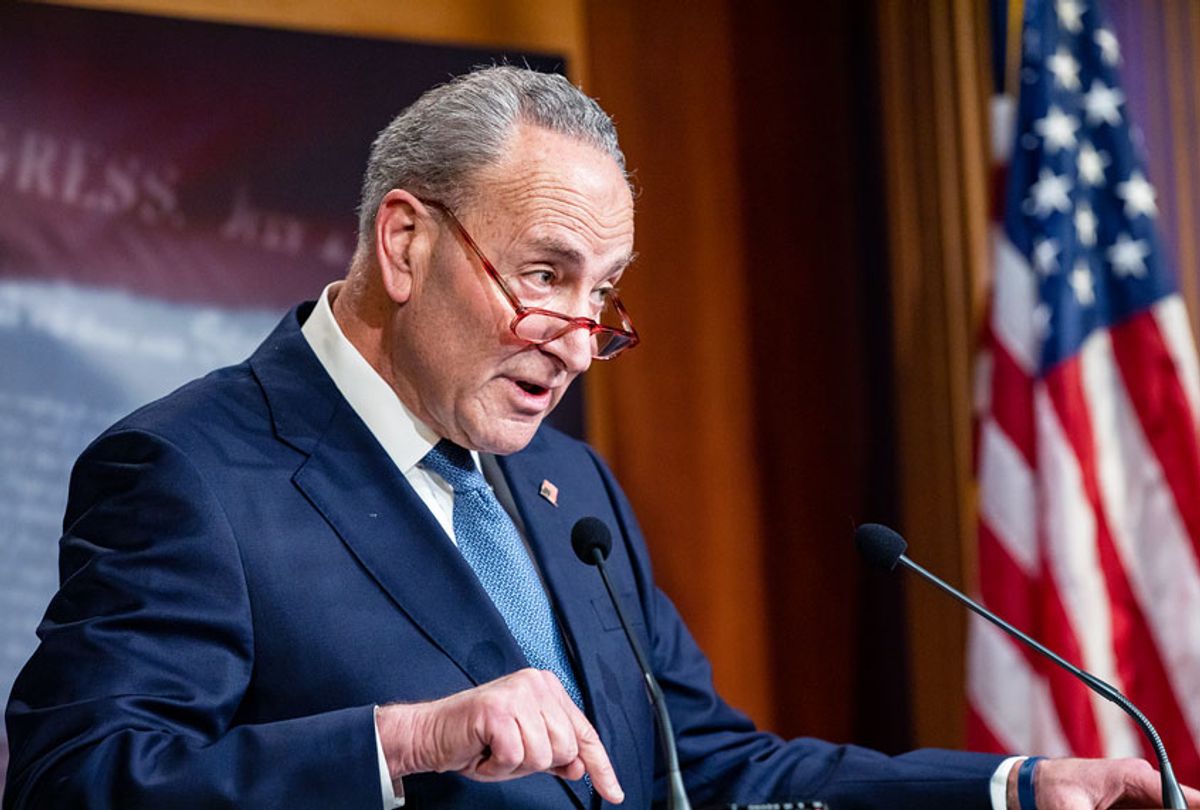Democrats in both chambers of Congress launched one of the first serious pressure campaigns on the new Biden administration, unveiling a formal resolution calling upon the president to use his executive authority to cancel $50,000 of student debt for each borrower. Senator Elizabeth Warren, D-MA, a former bankruptcy law professor who first proposed the plan to cancel student debt during her failed run for the presidency, held a press conference with Senate Majority Leader Chuck Schumer, D-NY, to announce the resolution and ask Joe Biden for his support.
The $650 billion plan would unburden students both past and present from a mountain of crippling federal debt, according to its co-sponsor, Rep. Ilhan Omar, D-Minn.
"Canceling student loan debt would immediately put money in the pockets of millions of Americans," Warren tweeted weeks ago. "It would help dig our economy out of this crisis. And we don't have to wait for Congress: the Biden-Harris administration can get it done with their executive authority."
Along with Warren, Schumer, and Omar, the campaign to pressure Biden into canceling $50,000 for each borrower is joined by Rep. Ayanna Pressley, D-MA, Rep. Alma Adams, D-NC, Rep. Mondaire Jones, D-NY, and Rep. Maxine Waters, D-CA, who last December called on Biden to enact the debt jubilee on his first day in office.
"With the stroke of a pen, President Biden can provide relief to tens of millions of families across the country [and] close the racial wealth gap," Rep. Pressley said on Thursday.
However, with Biden already having pumped out nearly 30 executive orders, none of them addressing the student debt crisis, it remains unclear whether the caucus has the President's allegiance. White House press secretary Jen Psaki said in a Tweet on Thursday that the administration is "reviewing whether there are any steps [Biden] can take through executive action" but reiterated that the president "would welcome the opportunity to sign a bill sent to him by Congress."
Last November, Biden called for an "immediate $10,000 forgiveness of student loans," which he later clarified should be carried out by way of Congress. In December, Biden told The Washington Post that it's "questionable" he even had the executive power to forgive up to $50,000 in student debt. "I'm not sure of that," he said, "I'd be unlikely to do that."
However, Schumer and Warren do not share Biden's trepidation and have maintained that the President can circumvent the legislative branch –– which generally decides upon matters of fiscal spending –– by invoking the 1965 Higher Education Act. As Warren noted on her website, Section 432(a) of the Act grants the U.S. Secretary of Education the authority "compromise, waive, or release any right, title, claim, lien, or demand, however acquired, including any equity or any right of redemption."
"The easiest way to do it is for President Biden [to do it] with the flick of a pen," Schumer said on Thursday.
According to Warren, studies have shown that student debt cancellation would "substantially increase Black and Latinx household wealth and help close the racial wealth gap," as well as "provide immediate relief to millions who are struggling during this pandemic and recession."
The resolution has legion support from over 100 community, consumer, civil rights, and student advocacy organizations, which have penned a letter to Congress asking that they make "make student debt cancellation a priority."
On Wednesday, Warren asked Biden's secretary of Education, Miguel Cardona, to provide "immediate relief," stating, "One route that I'm going to continue to urge you to take is administrative cancellation of student loan debt. The law in this is clear."
Cardona acknowledged the severity of the student debt crisis, as well as the racial wealth gap that continues to widen under the status quo. But he did not go into specifics about how the Biden administration plans to tackle the issue, which has especially put borrowers of color in financial straits amid the pandemic.
Approximately 44 million Americans hold student debt, a number that translates to roughly 17 percent of the population, with total debt estimated to be about $1.6 trillion for the entire nation.



Shares